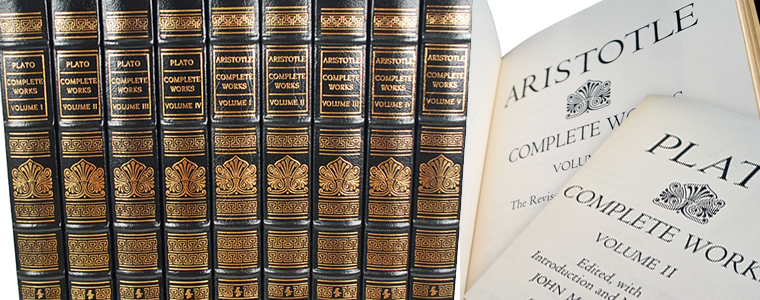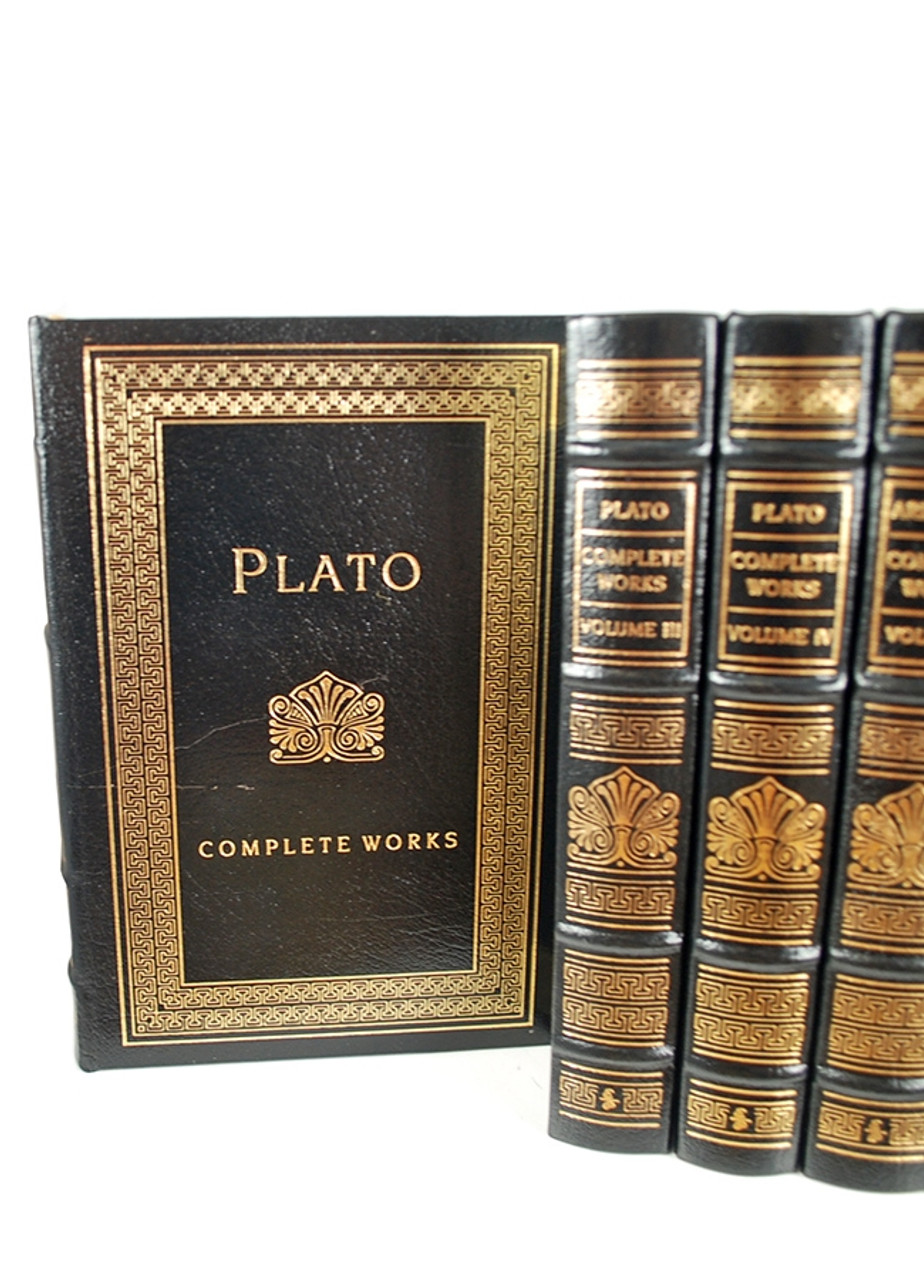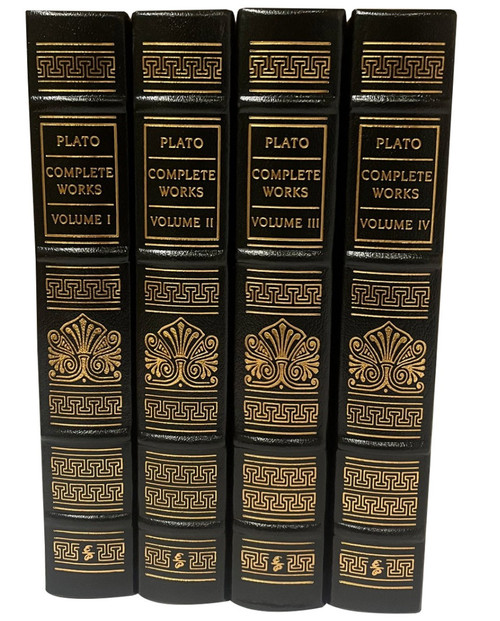The greatest Greek classics in today's highly acclaimed translations, luxuriously bound in full premium leather.
Easton Press, 2001. "Plato and Aristotle: Complete Works". A complete set of each, matching 9 volume leather bound set of The Greek Classics. Full genuine leather. 8vo - over 7" - 9" tall. This collection is luxuriously bound in black leather with gold stamping. A beautiful set of the greatest philosophers of ancient Greece and arguably of all the western philosophy. A rare find of this publication set.
Plato set -
Edited, with Introduction and Notes by John M. Cooper Associate
Editor: D.S. Hutchinson.
Aristotle set -
Revised Oxford Translation. Edited by Jonathan Barnes.
Edited by Jonathan Barnes.
List of volumes in this shipment:
- "Aristotle: Complete Works" Vol I [Sealed]
- "Aristotle: Complete Works" Vol II [Sealed]
- "Aristotle: Complete Works" Vol III [Sealed]
- "Aristotle: Complete Works" Vol IV [Sealed]
- "Aristotle: Complete Works" Vol V [Sealed]
- "Plato: Complete Works" Vol. I [Sealed]
- "Plato: Complete Works" Vol. II [Sealed]
- "Plato: Complete Works" Vol. III [Sealed]
- "Plato: Complete Works" Vol. IV [Sealed]

Aristotle was an ancient Greek philosopher and scientist born in the city of Stagira, Chalkidiki, in the north of Classical Greece. Along with Plato, Aristotle is considered the "Father of Western Philosophy", which inherited almost its entire lexicon from his teachings, including problems and methods of inquiry, so influencing almost all forms of knowledge.
Little is known for certain about his life. His father, Nicomachus, died when Aristotle was a child, and he was brought up by a guardian. At seventeen or eighteen years of age, he joined Plato's Academy in Athens and remained there until the age of thirty-seven (c. 347 BC). His writings cover many subjects – including physics, biology, zoology, metaphysics, logic, ethics, aesthetics, poetry, theatre, music, rhetoric, psychology, linguistics, economics, politics and government – and constitute the first comprehensive system of Western philosophy. Shortly after Plato died, Aristotle left Athens and, at the request of Philip II of Macedon, tutored Alexander the Great beginning in 343 BC.
Teaching Alexander gave Aristotle many opportunities. He established a library in the Lyceum which helped him to produce many of his hundreds of books, which were papyrus scrolls. The fact that Aristotle was a pupil of Plato contributed to his former views of Platonism, but, following Plato's death, Aristotle immersed himself in empirical studies and shifted from Platonism to empiricism. He believed all concepts and knowledge were ultimately based on perception. Aristotle's views on natural sciences represent the groundwork underlying many of his works.
Wikipedia
Features
Includes all the classic Easton Press qualities:
* Premium Leather
* Silk Moire Endleaves
* Distinctive Cover Design
* Hubbed Spine, Accented in Real 22KT Gold
* Satin Ribbon Page Marker
* Gilded Page Edges
* Long-lasting, High Quality Acid-neutral Paper
* Smyth-sewn Pages for Strength and Durability
* Beautiful Illustrations
- Publisher:
- Easton Press
- Edition:
- Easton Press
- Binding:
- Full genuine leather
- Illustrator:
- Limited Edition
- Dimensions:
- 5.3" x 1.2" x 8"

















![Easton Press "The Complete Works of Aristotle" Leather Bound Limited Edition, Five Volume Matching Set [Sealed] Easton Press "The Complete Works of Aristotle" Leather Bound Limited Edition, Five Volume Matching Set [Sealed]](https://cdn11.bigcommerce.com/s-eohzfjch7f/images/stencil/500x659/products/726/9515/DSC_0746__95414.1625919818.JPG?c=1)



![Easton Press "Butler's Lives Of The Saints" Limited Edition, Leather Bound Collector's Edition, Complete Matching 4-Vol Set [Sealed] Easton Press "Butler's Lives Of The Saints" Limited Edition, Leather Bound Collector's Edition, Complete Matching 4-Vol Set [Sealed]](https://cdn11.bigcommerce.com/s-eohzfjch7f/images/stencil/500x659/products/2572/10069/Butlers_Lives-2__21991.1634220651.JPG?c=1)